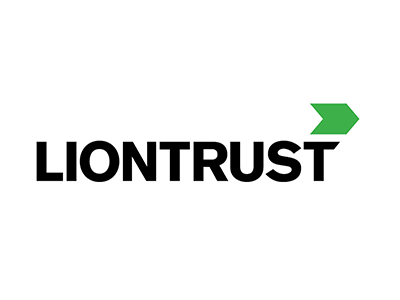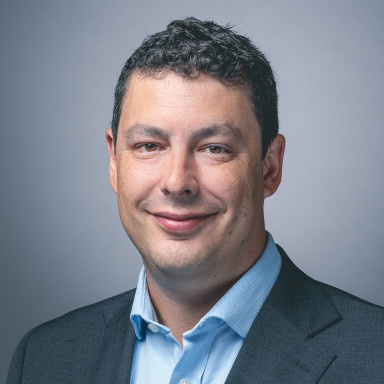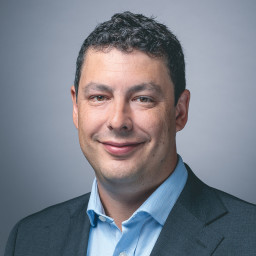This fund’s managed by an experienced team that’s passionate about sustainability
They avoid ‘sin stocks’ and invest in bonds issued by companies they consider are making a positive environmental or social difference
There were some changes to the team that manage the fund in 2023
This fund features on our Wealth Shortlist of funds chosen by our analysts for their long-term performance potential
How it fits in a portfolio
The Liontrust Sustainable Future Corporate Bond fund aims to deliver a combination of income and capital growth over the long term by investing mostly in sterling-denominated, investment grade corporate bonds.
The fund excludes areas some may find unethical, such as tobacco, coal and armaments and invests mostly in companies making a positive difference to the environment or society.
This sustainable tilt means the fund will perform differently to peers at times, so could offer some diversification to a traditional fixed income portfolio. It could also help to diversify a portfolio focused on other assets, such as company shares. More broadly, it could be considered for corporate bond exposure, but with a sustainability focus.
Manager
The fund’s run by a team of four investment managers: Kenny Watson, Aitken Ross, Jack Willis and Connor Godsell. Watson has managed the fund since October 2013, Ross since 2014 and Willis since in 2021. All three joined Liontrust when their previous employer, Alliance Trust, was acquired. Godsell joined them in November 2023 to help run the fund.
Watson began managing fixed income funds in 2004, and Ross and Willis have researched and analysed fixed income investments since 2012 and 2016 respectively. Godsell has joined from abrdn. He has seven years’ experience analysing bonds, including some time managing bond funds.
The four managers, and three other colleagues, form the small but focused Sustainable Future Fixed Income team.
The previous head of the team, Stuart Steven, left Liontrust in 2023 . This has caused some disruption and a rejig of responsibilities. However, we think the team are suitably experienced and resourced to continue to manage the fund well going forward. We like the addition of Godsell following Steven’s departure, given his greater level of experience compared to some of the analyst hires the team has made in recent years.
Alongside this fund, the team also manages the Liontrust Monthly Income Bond fund and the Liontrust GF Sustainable Future European Corporate Bond fund, as well as the fixed income part of a small number of multi-asset funds. We think this is a reasonable workload given the portfolios are similarly managed.
The team can also draw on an Independent Advisory Committee, which is an external panel of sustainability experts who provide feedback on the investment process, highlight areas for improvement and act as an additional level of oversight.
Process
The fund is part of Liontrust’s Sustainable Future range of funds. These funds aim to help create a cleaner, safer and healthier society for the future and generate attractive returns for investors. The managers believe investing in sustainable companies provides greater return potential, and less risk, than other companies, and that many other investors fail to value the sustainability of a business correctly.
Their investment process revolves around a quarterly strategic outlook meeting, where the managers form their views on the future direction of economic growth, interest rates and inflation. This helps shape the way they construct the fund, and how much risk they’re willing to take. The team also conducts more frequent meetings to review positioning, discuss new opportunities and identify new risks.
Sustainability and ESG analysis is fully integrated into the team’s investment process. They aim to identify bonds issued by high-quality companies whose core products or services make a positive contribution to society or the environment. This sustainability analysis is completed within the team for every bond issuer in the fund.
The fund also employs negative screening. This means it won’t invest in any company that makes more than 5% of its revenues from alcohol, animal testing services, coal, oil & gas, gambling, intensive meat and fish farming, nuclear, ozone depleting substances, pornography, tobacco or weapons systems.
While the managers use this process to find high-quality companies, that doesn’t mean they only invest in bonds with very good credit ratings. Once the team find a high-quality company, they then consider all of the different bonds issued by the companies and invest in those which they believe will provide the best returns. This often leads the fund to have lots of investments in BBB rated bonds, which is the lower quality end of the investment grade category. This will sometimes result in the fund having higher volatility than the benchmark or peers, particularly over shorter-time periods.
The fund’s four managers each have different specialisms. Watson focuses on telecoms, retail, high yield bonds and overall credit strategy. Ross looks at insurance, financial services, healthcare and has a focus on portfolio construction. Willis also covers financials and considers how the fund is positioned for interest rate changes. Godsell has joined the team more recently and has a focus on the interest rate strategy and how wider economic trends could impact the fund. There is a fair degree of coverage overlap, which leads to a good amount of discussion and challenge amongst the team.
Banks, insurance, utilities and telecoms are some of the fund’s largest sector exposures, but there’s a broad spread of investments across a variety of sectors to ensure diversification. The fund is currently invested in a way to make it more sensitive to interest rate rises (higher duration) than its benchmark, the iBoxx Sterling Corporate All Maturities Index, because of the managers’ view that interest rates are more likely to fall than rise from here over the long-term.
Over the last 12 months the sector positioning of the fund has remained broadly similar, with the most notable changes being a small decrease to the investments in telecoms and a small increase to the investments in banks.
In terms of credit ratings, the fund has reduced investments in the high yield category (the lower end of the credit ratings spectrum) and have increased investments in BBB rated credit. BBB rated credit is the lowest rating within the investment grade category.
The managers have the flexibility to invest in derivatives and emerging markets which, if used, adds risk.
Culture
Liontrust gives managers the freedom to manage their funds according to their own investment and market views. The company simply asks managers not to deviate from their investment processes. Each manager's funds are regularly checked by other senior managers at Liontrust to ensure they're staying true to their investment processes.
We like that all Liontrust fund managers invest a significant amount of their own money into the funds they run, and their incentivisation is tied to the performance of the funds they manage. We think these factors help to align their interests with those of investors.
ESG Integration
The freedom afforded to fund managers at Liontrust means there are no top-down views imposed on managers, so the quality of ESG (Environmental, Social and Governance) integration varies across the firm. That said, the firm’s Sustainable Future range of equity and fixed income funds incorporate ESG analysis in a robust way. We like that individual managers have full responsibility for their investments, undertaking the sustainability and ESG analysis, as well as the more traditional company analysis. The same manager also spearheads any engagement that takes place with the companies they cover – it’s not farmed out to a separate Stewardship team. It’s clear that the team regards sustainability and ESG as key parts of the investment process, and it’s considered with the same level of importance as the more traditional financial analysis.
The team produces regular insight articles, available via the Liontrust website. They also produce a detailed annual Engagement and Voting review, and a Sustainable Investment Annual Review, which explores the team’s views on a variety of sustainability-related issues.
Overall we think this is one of the most ESG integrated funds available within the IA £ Corporate Bond sector.
Cost
This fund has an ongoing annual charge of 0.56%. The HL platform fee of up to 0.45% per year also applies.
Please note that charges are taken from capital, which could boost the income, but reduces potential for capital growth.
Performance
The Sustainable Future Fixed Income team began managing the fund in August 2012. However, given the departure of Steven who had been head of the team, our focus is on performance since 2014. This is the period that both Watson and Ross have been managers. Since then, it’s returned 27.30%* to the end of January 2024, compared to the average return of funds in the IA £ Corporate Bond sector of 26.75%. Remember, past performance is not a guide to the future. Like all funds, the value could fall as well as rise so investors could get back less than they invest.
Over the 12 months to the end of January 2024, the fund outperformed the IA £ Corporate bond peer group average too.
Bond selection was positive overall for the fund, with investments in banks and insurers particularly adding value. Specific bonds from HSBC, BNP and AXA were particular highlights for the fund over the year.
The management of duration was also positive. Duration is a measure of how sensitive the fund is to interest rate changes, the lower the duration value, the less sensitive the fund is to interest rate changes. Over the year the managers altered their levels of duration at appropriate times, meaning that they benefited from changes in interest rate expectations, particularly towards the end of 2023.
That said, the fund’s exposure to UK government bonds (gilts) detracted from returns.
It’s worth noting the fund’s ESG exclusion criteria means it’s a different proposition to many in its peer group. This means the fund will perform differently to peers in the IA £ Corporate Bond sector, and its benchmark, at times. When the excluded areas are out of favour and their prices fall, the fund could do well. When they perform well, the fund will miss out. We ultimately think the managers have the potential to reward those who are prepared to take a long-term approach, although there are no guarantees.
The fund was also more volatile than the average fund in the IA £ Corporate Bond sector over the 12 months to the end of January 2024. This has continued a broader theme for the fund over the last few years. Part of the reason for this was the higher level of duration compared to the benchmark. Another cause was because the fund had more invested in BBB rated credit. As this is at the lower end of the investment grade credit ratings, these bonds can be more volatile.
Within the universe of responsible fixed income funds, we have conviction in this one, but there are also other Corporate Bond funds on the Wealth Shortlist without strict exclusion criteria that may offer superior performance potential.
At the end of December 2023, the fund had a distribution yield of 4.16%, although yields are variable, not guaranteed, and yields are not a reliable indicator of future income.
Annual percentage growth
31/01/2019 To 31/01/2020 | 31/01/2020 To 31/01/2021 | 31/01/2021 To 31/01/2022 | 31/01/2022 To 31/01/2023 | 31/01/2023 To 31/01/2024 | |
|---|---|---|---|---|---|
Liontrust Sustainable Future Corporate Bond | 12.10% | 3.96% | -3.85% | -12.47% | 6.06% |
IA £ Corporate Bond | 10.37% | 4.44% | -3.51% | -11.19% | 4.33% |


